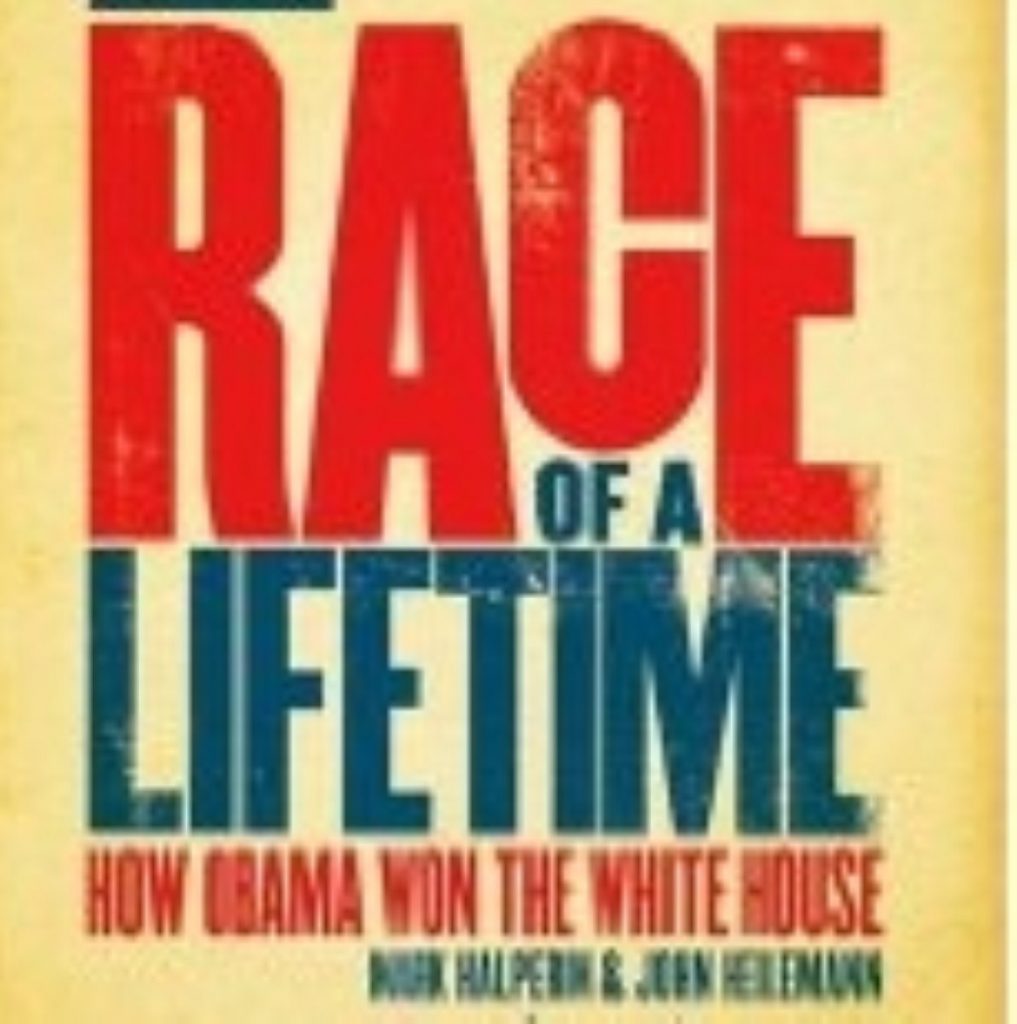Review: Race of a Lifetime
How Barack Obama won the White House and Sarah Palin lost her mind.
Race of a Lifetime – John Heilemann and Mark Halperin
Penguin – Out now
Review by Matthew Champion


If our politicians seem alien to us in the UK, then those from across the Atlantic might as well be from another galaxy.
That is the main message that emerges from Race of a Lifetime (confusingly called Game Change in the US), an account of Barack Obama’s improbable and historic ascent to the White House, released to coincide with the first anniversary since he took office.
The book has already made waves on both sides of the Atlantic, with a raft of apologies and denials being issued by those implicated in the book’s many titillating revelations before it had even hit the shelves (much more on those later).
In the long list of factors that irrevocably distinguish US and British domestic politics (religion, money, idealism and patriotism, not to mention a political centre doggedly fixed to the right) it is the role of politicians’ spouses, and the obsession with them, that stands first and foremost.
Sarah Brown may have introduced her husband at the last two Labour party conferences, and Samantha Cameron may be pictured helping her husband with the odd speech, but the defining characteristic of the political spouse in Britain belongs to the Denis Thatcher school, and sound, of silence.
Authors John Heilemann and Mark Halperin, both pre-eminent US political journalists, write in their foreword that they wrote Race of a Lifetime, ostensibly a historical account of an election only 14 months old, to provide the story behind the headlines; paint an intimate portrait of the candidates and their spouses.
And if that sounds a bit tabloid to you, that’s because it is.
The insight into the brutal and heady world of nomination and presidential campaigns is giddying. But it is the ‘intimacy’ that the authors’ astoundingly-good sources provide, via face-to-face interviews, that makes the book a compulsive, obsessive read.
While the authors’ habit of quoting people’s thoughts seems a bit too much at first, any apprehension is dispelled as the vibrant, passionate personalities of all the candidates involved in the election take shape.
But for vibrant, also read crazy . The Clinton and McCain marriages fare less well under the authors’ microscope, for example, than the Obamas (a loving couple and doting parents; Barack blessed with godlike temperance and foresight and Michelle – in the president’s eyes – his genuinely better half, both of them accepting of the duty of seeing things through to the White House).
The spouses of both Hillary Clinton and John McCain are linked with disastrous affairs in Race of a Lifetime, and in both instances the candidates ask their staff to sort it out, preferring not to get involved.
Clinton emerges from the text as a truly remarkable woman who, like all the candidates (apart from John Edwards) shows genuine reluctance to consider running. Once she has though, resolute determination frames everything she does. The person most surprised at Hillary’s staying power in the election is Obama; the person least surprised is her husband Bill.
McCain, like Hillary, is shown to share a similar reluctance to put himself and his family through the mill of a Republican nomination contest after being burned so badly in 2000. Although his fire is stoked by undoubted patriotism, McCain’s doomed campaign lurches from one blip to another. His candidacy is continually undermined by rash decisions – such as his statement that “the fundamentals of our economy are strong” during the windup of Lehman Bros or the suspension of his campaign for a needless bailout summit at the White House. There is also an unwillingness, almost lazy in its nature, to engage.
But the flaws of either candidate, or the alleged infidelity of Bill Clinton or Cindy McCain, do not compare to the well-publicised downfall of would-be Democratic first couple John and Elizabeth Edwards. The authors go for the jugular with both, detailing his affair with documentary-maker Rielle Hunter and growing megalomania; and exposing her public persona as the most beloved woman in America as an ill-constructed lie.
While Edwards’ role in public life is over, another of the book’s targets would like to think hers is not. If what you read in Race of a Lifetime is true, anyone who fears a Sarah Palin presidential bid in 2012 need not worry; she will have to run as an independent because her association with the Republican party machine seems irrevocably burned.
But while the authors do expose yet more humiliating details of Palin’s inadequacy (she did not know why there were two Koreas, nor who her son would be fighting in Iraq, and believed Saddam Hussein had attacked the World Trade Centre), they also paint a sympathetic picture of a woman elevated far too fast and on the verge of a breakdown as a result.
Both Edwards and Palin inspire some heart-warming tales of loyalty and sincerity however, with his staffers apparently wanting to leak the story of his affair to force him to pull out of the Democratic nomination contest so as to not damage the eventual nominee, and McCain campaign staff not wanting their own candidate elected so as to not have contributed to putting Palin within a heartbeat of the presidency.
The star of the show is, as you would expect, Obama. Race of a Lifetime confirms that we thought we knew all along, that Obama was a superstar phenomenon with unique gifts for oratory and level-headedness whose complete and utter lack of hubris eventually even convinced his most sceptical critics (the Clintons among them) of his quality.
For, as the authors put it, there was no greater endorsement of President Obama than his most bitter foe agreeing to work for him in his administration as secretary of state.












